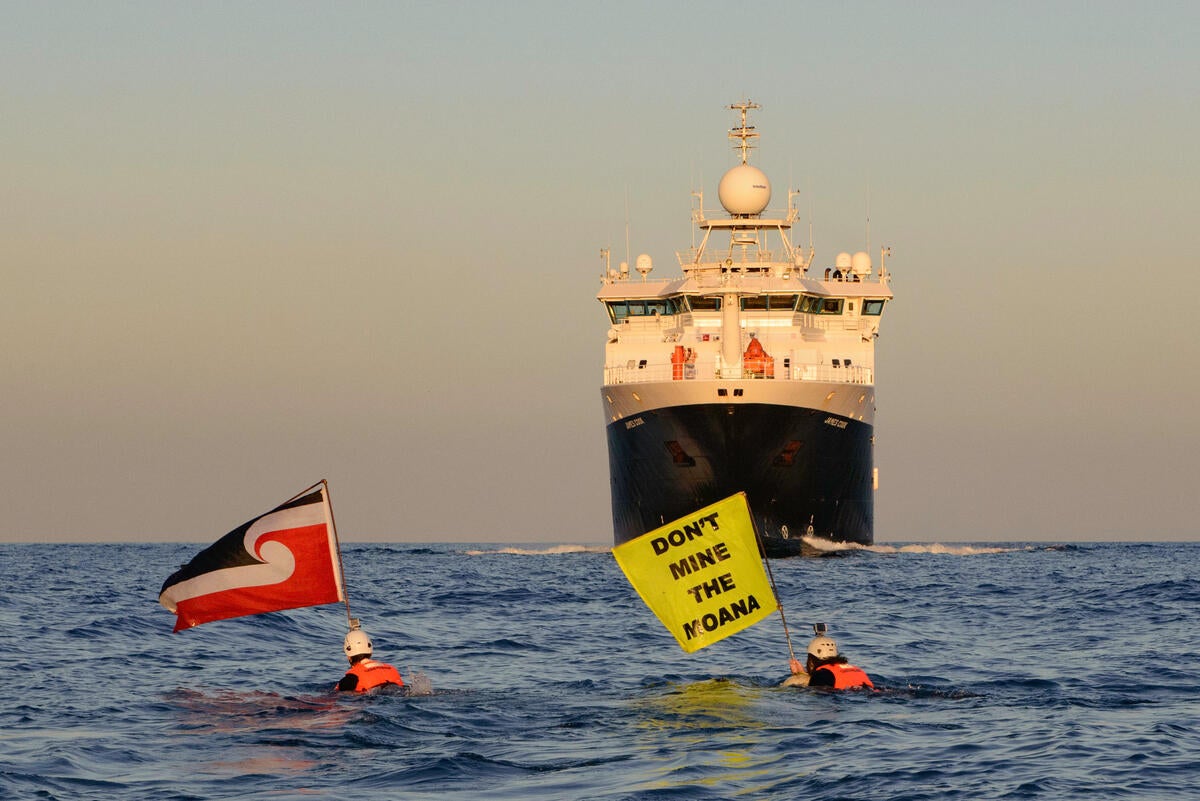
Māori activists for environmental group Greenpeace swam in front of a deep-sea mining research ship on Monday to protest deep-sea mining in the East Pacific.
The ship, RSS James Cook, is operated by the UK’s Natural Environment Research Council. It was returning from a seven week-long expedition of the Pacific Ocean targeting deep-sea mining research.
Activists from Greenpeace ship Arctic Sunrise intercepted the RSS James Cook off the coast of Costa Rica. Protestors floated in front of the vessel waving banners reading “don’t mine the Moana”, the Māori word for ocean.
One activist, Quack Pirihi, told the New Zealand Herald: “I’m proud that I was able to bring my tūpuna [ancestors] with me and bring rangatahi [younger] Māori with me, through the flying of the Tino Rangatiratanga flag.” Tino rangatiratanga is a Māori term rooted in the peoples’ worldviews, which can mean self-determination, sovereignty, independence, and autonomy.
“This kaupapa is so much more than me. It is the future of the moana and has the opportunity to destroy our oceans until the end of humankind. Our intention was to show that we are watching, and this isn’t okay. We must not let mining start in the Pacific”.
Greenpeace has requested findings from the RSS James Cook expedition, which is part-government funded.
How well do you really know your competitors?
Access the most comprehensive Company Profiles on the market, powered by GlobalData. Save hours of research. Gain competitive edge.

Thank you!
Your download email will arrive shortly
Not ready to buy yet? Download a free sample
We are confident about the unique quality of our Company Profiles. However, we want you to make the most beneficial decision for your business, so we offer a free sample that you can download by submitting the below form
By GlobalDataGreenpeace Aotearoa campaigner James Hita said: “For too long, Pacific peoples have been excluded from decisions that impact our territories and waters. If governments don’t stop this industry from starting, a new cycle of colonial exploitation will begin. We reject a future with deep-sea mining.”
The protest comes during a pivotal two-week meeting at the 28th International Seabed Authority in Jamaica. Here, world governments will agree on global plans and legislation regarding deep-sea mining.
It also comes despite a landmark decision in October by New Zealand’s Supreme Court to block consent for seabed mining off the coast of South Taranaki. The ruling was hailed by environmental campaigners as a “true victory for the ocean, and for people power”.



